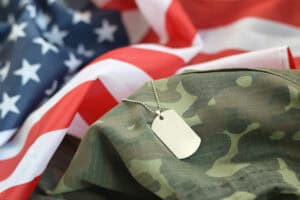The VA said it has been working to finalize a rule that could cover more than 2,000 military personnel who flew or worked on Fairchild C-123 aircraft in the U.S. from 1972 to 1982. Many of the Vietnam-era planes, used by the reservists for medical and cargo transport, had sprayed millions of gallons of herbicide during the 1955-1975 military conflict in Southeast Asia.
If the White House Office of Management and Budget approves the change, it would be the first time the VA had established a special category of Agent Orange exposure for military personnel without “boots on the ground” or inland waterways service in Vietnam. That could open the VA to renewed claims by thousands of other veterans who say they were exposed to Agent Orange in less direct circumstances, such as on the open sea.
The announcement is expected as early as this coming week.
An Institute of Medicine report in January concluded that many C-123 reservists had been exposed to chemical residues on the aircraft’s interior surfaces and suffered higher risks of health problems as a result. The institute is part of the National Academy of Sciences, a private organization chartered by Congress to advise the government on scientific matters.
Using that report, the department “determined that potentially exposed veterans would be eligible for Agent Orange-related benefits,” the VA said in a statement. It also is reviewing whether certain active-duty troops may have been exposed. “Our goal is to ensure all affected C-123 crewmembers receive disability benefits and medical care.”
Before requesting the report, the VA had generally denied claims submitted since 2011 by C-123 reservists, saying it was unlikely they could have been exposed to Agent Orange from the residue.
About 653,000 Vietnam-era veterans have received Agent Orange-related disability benefits since 2002, when the VA officially began tracking the cases.
The proposed rule would expand coverage under the 1991 Agent Orange Act to reservists who were stationed at Rickenbacker Air National Guard Base in Columbus, Ohio, Pittsburgh Air National Guard Base and Westover Air Reserve Base in Chicopee, Mass.
Many were pilots, mechanics or medical personnel and simply followed orders when it came to working on C-123s, according to the C-123 Veterans Association. It was formed four years ago by retired Air Force Maj. Wesley T. Carter after he and other reservists noticed a pattern in the various ailments they suffered.
The reservists under the rule would be entitled to VA disability benefits if they developed health problems such as prostate cancer, diabetes and leukemia that were determined by the VA to be connected to Agent Orange.
“There wasn’t that much talk of Agent Orange,” said retired Tech. Sgt. Ed Kienle, 73, of Wilmington, Ohio, who worked on C-123 aircraft.





